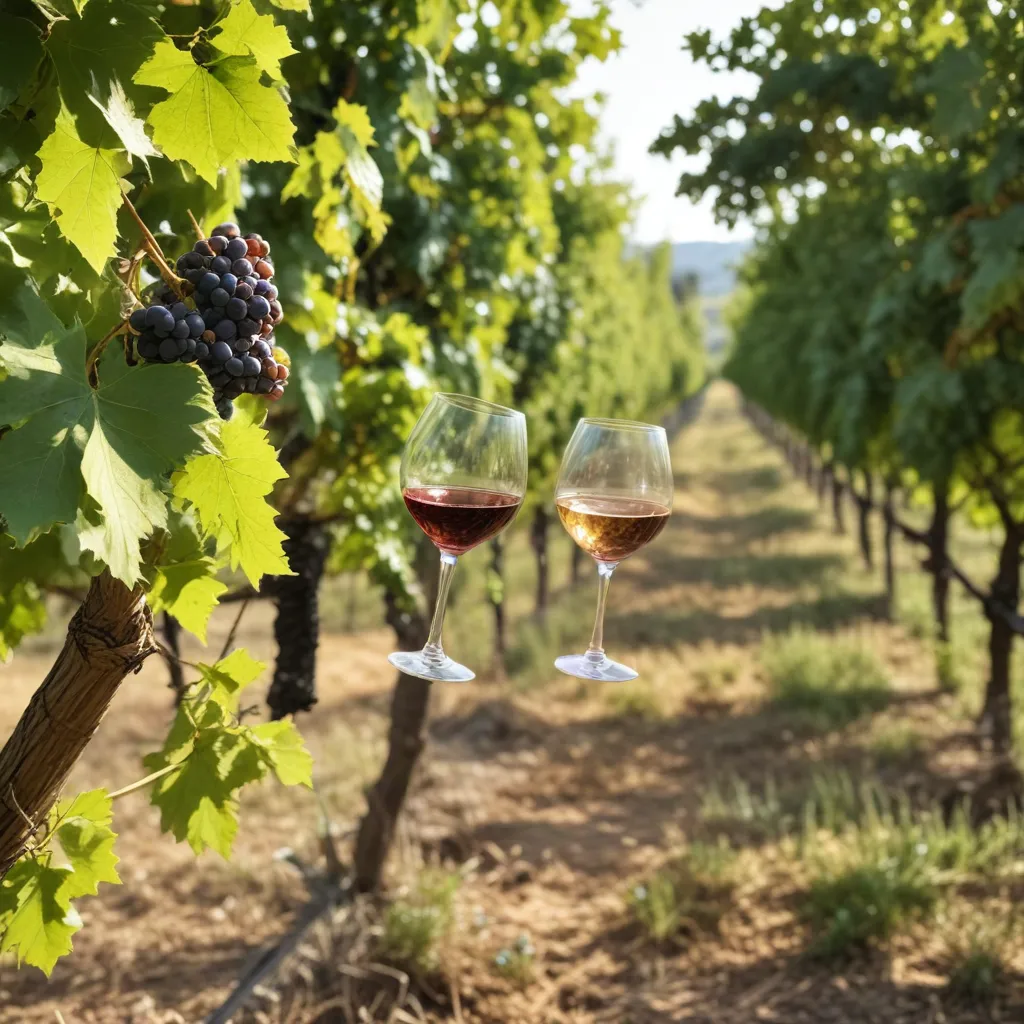
Sustainable Sipping: The Environmental Impact of Biodynamic Winemaking
As consumers become increasingly conscious of their environmental footprint, the wine industry has undergone a significant transformation, embracing sustainable practices that go beyond conventional organic viticulture. At the forefront of this movement lies biodynamic winemaking – a holistic approach that treats the vineyard as a self-sustaining ecosystem, yielding exceptional wines while minimizing the industry’s ecological impact.
Principles of Biodynamic Agriculture
The foundations of biodynamic agriculture, as pioneered by philosopher Rudolf Steiner, are rooted in the idea of the farm as a living, interconnected organism. This philosophy requires winegrowers to consider the vineyard as a closed-loop system, where nutrients, energy, and resources are carefully managed to create a balanced, thriving environment.
At the heart of biodynamic practices are the use of specially prepared biodynamic preparations – made from natural materials like cow manure, plant extracts, and mineral compounds. These preparations are meticulously applied to the soil and vines, according to the rhythms of the moon and planets, to enhance the plant’s natural resilience and the overall health of the ecosystem.
By embracing this cyclical, regenerative approach, biodynamic vineyards eschew synthetic fertilizers and pesticides, instead relying on cover crops, composting, and other organic methods to nourish the soil and control pests. This closed-loop nutrient cycling not only improves soil quality but also promotes thriving biodiversity, with a diverse array of flora and fauna coexisting in the vineyard.
Environmental Benefits of Biodynamic Viticulture
The holistic nature of biodynamic farming yields a range of environmental benefits that extend far beyond the vineyard walls. By focusing on soil health and biodiversity, biodynamic winegrowers help to sequester carbon, reduce greenhouse gas emissions, and conserve precious natural resources.
The robust soil structure and water-holding capacity of biodynamic soils often require less irrigation, translating to significant water conservation. Furthermore, the absence of synthetic chemicals means that biodynamic vineyards have a reduced risk of water pollution and a lower carbon footprint from the production and transport of these inputs.
The promotion of biodiversity in biodynamic vineyards also plays a crucial role in maintaining a healthy, balanced ecosystem. The presence of a diverse array of flora and fauna – from beneficial insects to small mammals – helps to control pests and diseases naturally, reducing the need for harmful pesticides and herbicides.
Sustainable Winemaking Practices
While biodynamic viticulture lays the foundation for sustainable winemaking, forward-thinking producers are also implementing a range of eco-friendly practices in the winery and beyond. From water conservation strategies to energy-efficient operations, these holistic approaches aim to minimize the environmental impact of the entire wine production lifecycle.
Water conservation is a top priority for many sustainable wineries, with the adoption of advanced drip irrigation systems and the implementation of wastewater recycling and treatment programs. By carefully managing this precious resource, wineries can significantly reduce their water footprint while maintaining the quality of their wines.
Equally important is the focus on energy efficiency within the winery. Many producers are embracing renewable energy sources, such as solar power, to power their operations, while also optimizing their facilities to minimize energy consumption. Innovations in lightweight glass bottle design and alternative packaging formats further contribute to reducing the carbon footprint associated with transportation and distribution.
Organic vs. Biodynamic Wine
While organic and biodynamic winemaking share several core principles, there are distinct differences in their certification requirements and overall approach. Organic certification, as defined by the USDA, primarily focuses on the prohibition of synthetic pesticides and fertilizers in the vineyard, ensuring the grapes used in winemaking are free from these chemicals.
In contrast, biodynamic certification (often through the Demeter International organization) takes a more holistic view, encompassing the entire farm ecosystem, from soil health to the integration of animals and the use of specialized biodynamic preparations. This comprehensive approach aims to create a self-sustaining, balanced system that goes beyond organic standards.
While both organic and biodynamic wines are appealing to sustainability-minded consumers, the perceived benefits extend beyond just environmental concerns. Many wine enthusiasts believe that the meticulous attention to detail and the minimization of chemical intervention in biodynamic winemaking results in wines that more authentically express their terroir – the unique characteristics of the grape’s growing environment.
Life Cycle Assessment of Biodynamic Wine
To fully understand the environmental impact of biodynamic winemaking, it is essential to consider the entire life cycle of the wine, from grape growing to packaging and distribution. Numerous studies have sought to quantify the greenhouse gas emissions, resource consumption, and other sustainability metrics associated with this approach.
Greenhouse gas emissions from biodynamic vineyards are often lower than their conventional counterparts, thanks to the reduced reliance on synthetic inputs and the enhanced carbon sequestration capabilities of healthy soils. However, the winemaking process and packaging decisions also play a significant role in the overall carbon footprint.
Similarly, resource consumption, such as water usage and energy demand, can be optimized through the implementation of sustainable practices throughout the wine production chain. Biodynamic wineries that prioritize water conservation, renewable energy, and lightweight packaging can significantly minimize their environmental impact.
As consumers continue to seek out environmentally responsible products, the demand for biodynamic and other sustainably produced wines will likely continue to grow. By embracing these holistic, earth-friendly practices, wineries can not only reduce their ecological footprint but also create wines that truly capture the essence of their unique terroir – a gift that wine lovers around the world can savor with a clear conscience.
To experience the fruits of our biodynamic labor, we invite you to visit Wine Garden Inn and explore our selection of sustainably produced wines. From our estate-grown produce used in our gourmet breakfasts to the carefully tended gardens that surround our property, sustainability is at the heart of everything we do. Join us on this journey toward a more environmentally conscious future, one sip at a time.
